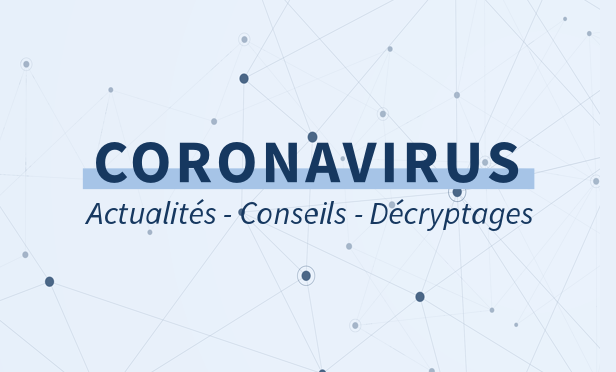Hello,
Before the time of good resolutions, that of good advice.
France must become the "
nation of prevention
", this is the wish of the authorities.
As Covid indicators continue to point upwards, the Minister of Health took the floor this Friday to urge the French to get vaccinated against both Covid and flu as the holidays approach.
“
Vaccination is our weapon of massive protection
”, declared François Braun while recalling the need to respect barrier gestures to fight against the circulation of all winter epidemics.
“
Common sense and respect can triumph over regulations and fines
“, finally concluded the minister in response to those who demand a return to the obligation to wear a mask in closed places.
Still, to cope with the influx of patients, the hospital is in bad shape.
A situation prior to the Covid epidemic and which the Ségur de la Santé billions have failed to improve.
Good reading,
Camille Lestienne, journalist at Le Figaro
1. Numbers on the rise
This year again, the Covid could disrupt the holidays.
BASILICOSTUDIO STOCK / stock.adobe.com
On Tuesday, the bar of 100,000 daily cases was crossed.
On a rolling average over 7 days, the number of cases recorded each day exceeds 50,000.
This ninth wave of the epidemic is largely due to the new BQ.1.1 subvariant according to experts interviewed by
Le Figaro
.
More contagious and possibly more resistant to the vaccine, it would however not be more dangerous than its parent BA.5, currently dominant.
The number of people in intensive care is currently increasing slightly with just over 1,200 patients.
Hospital tension for Covid-19 remains sustainable with a bed occupancy rate of 23.74%, up 10% in seven days.
The numbers to remember
53,504
new daily cases on average/7 days (+19.63% in 7 days)
21,619
people hospitalized (+9.91% in 7 days)
1,201
people in critical care (+10.28% in 7 days)
70
daily deaths on average (+9.38% in 7 days)
92.25%
share of the adult population completely vaccinated
Source Public Health France as of December 8
But, unlike the previous two years, three epidemics coexist – influenza, Covid and bronchiolitis – each bringing its share of patients to hospital wards.
So, is it too late to have a quiet Christmas?
“
This winter, we are going to catch Covid-19 like the dead
,
”
explains
epidemiologist Martin Blachier to
Le Figaro .
But wearing the mask and getting vaccinated could still slow the spread of the virus and preserve the hospital.
It is a “ known and effective
” arsenal
that François Braun, the Minister of Health, presented again this Friday during his press briefing which he wanted to be educational.
” READ ALSO –
Covid-19, flu, bronchiolitis: can you be infected with the three diseases at the same time?
2. Masks on the nose and vaccine for all
Emmanuel Macron wore a mask during the session of the National Council for Refoundation (CNR) on health on December 8 in Fontaine-le-Comte, near Poitiers.
TERESA SUAREZ / AFP
Mask
.
During his press conference, the Minister of Health insisted on the importance of barrier gestures to fight against the three epidemics which assail us, - Covid, influenza, bronchiolitis -, and soon gastroenteritis.
Washing your hands, ventilating, wearing a mask in closed places: a call for common sense rather than coercion.
“
We have to rely on everyone's responsibility, we are not obliged to make systematic bans
“, Prime Minister Elisabeth Borne had already reacted on RTL on Wednesday.
For the time being, therefore, the authorities are sticking to the recommendations despite the call from twelve patient associations to make the mask compulsory in certain places.
And besides, could the executive still do it?
In reality, the country having emerged from a state of health emergency since August 1, it is not as simple as before for the government to impose health restrictions unless it goes through prefectural decrees.
” READ ALSO –
Covid-19: the French mask industry, wanted by Macron, turns into a fiasco
Vaccine.
Another aspect of the fight against Covid, vaccination against the disease is today at a “discouraging” level
,
regretted the president of Covars, the body which replaced the Scientific Council.
François Braun recalled this Friday that only a quarter of those over 80 are sufficiently protected.
Who can benefit from the booster dose?
In theory, priority is given to people over 60, people at risk of severe form and their entourage, nursing staff.
In fact, anyone can request it.
This is what the Minister of Health recalled, who calls for “
a burst of vaccination
” and urges the French to be vaccinated against both Covid and the flu, as the holidays approach.
” READ ALSO –
Covid-19: does a recent court decision pave the way for the reintegration of unvaccinated caregivers?
3. China partly relieved
After restrictions are eased, worried Chinese people line up outside a fever clinic.
MARTIN POLLARD / REUTERS
The revolt seems to have paid off.
After citizen mobilization last week against the authorities' zero Covid policy, Beijing announced a dramatic easing of restrictions on Wednesday.
The National Health Commission (CNH) has thus authorized home quarantine for people who are positive but not very symptomatic as well as a lower frequency of PCR tests.
A relief for the Chinese who, however, remain suspicious and demand the release of the arrested demonstrators.
They are also worried about an increase in contamination.
” READ ALSO –
“I can no longer support the regime”: Chinese expatriates welcome the mobilization against “zero Covid”
4. A Shared Hospital Crisis
Medical interns demonstrated on November 9 against the additional year of internship in medical deserts.
CHARLY TRIBALLEAU / AFP
Despite the billions from the Ségur de la Santé, “
the hospital crisis, which existed before the pandemic, remains intact
”, analyzes Marie-Cécile Renault from the economy department of
Figaro.
The financial means put on the table have in any case not succeeded in solving the shortage of caregivers and the resulting disorganization.
“
It is the crisis of the entire French health system
“, Points to his side Arnaud Robinet, president of the Hospital Federation of France (FHF) and mayor of Reims (Horizons).
Should we be consoled to know that many European countries are facing the same difficulties?
For some of them, the Covid pandemic has only revealed the pre-existing fragilities of healthcare systems exacerbated by the exhaustion of caregivers: in the United Kingdom, the British healthcare system (National Health Service, NHS) is again on the verge of breaking up as Spain sees its doctors flee abroad.
5. The reflexes to keep
The virus is transmitted by droplets and aerosols.
The barrier gestures detailed by the Ministry of Health must be observed to protect themselves and others:
Wear the mask in closed and crowded places, especially for fragile people, with symptoms or contact cases.
Ventilate the rooms as often as possible, at least a few minutes every hour.
Wash your hands regularly or use hydroalcoholic gel.
Greet without shaking hands and stop hugging.
Cough or sneeze into the crease of your elbow.
Use single-use tissues.
6. What to do in case of symptoms?
The disease is most often manifested by cough, fever or feeling feverish, loss of smell and taste, fatigue.
If after a few days you have trouble breathing or are short of breath, you should contact 15. Symptoms are often milder with the Omicron variant, similar to those of a cold: sore throat, headache, runny nose.
In case of signs of the disease, the most important thing is to get tested.
The test, PCR or antigen, remains free for those who have not been vaccinated on medical prescription or after having been identified as a contact case by Health Insurance.
In the event of a positive result on a self-test, a confirmation PCR test is recommended.
While waiting for the result, you must isolate yourself and wear a mask.
In the event that the test is positive,
isolation must last 7 days
from the first symptoms for vaccinated persons,
10 days
for unvaccinated people.
It can be broken on D+5 or D+7 respectively, if you have a negative test and you have had no symptoms for 48 hours.
Good to know, since March 21, 2022, contact cases no longer need to isolate themselves, vaccinated or not, but wearing a mask is recommended and teleworking is preferred as far as possible.
” READ ALSO –
You have just learned that you are positive for Covid-19, what to do?
See you soon.















